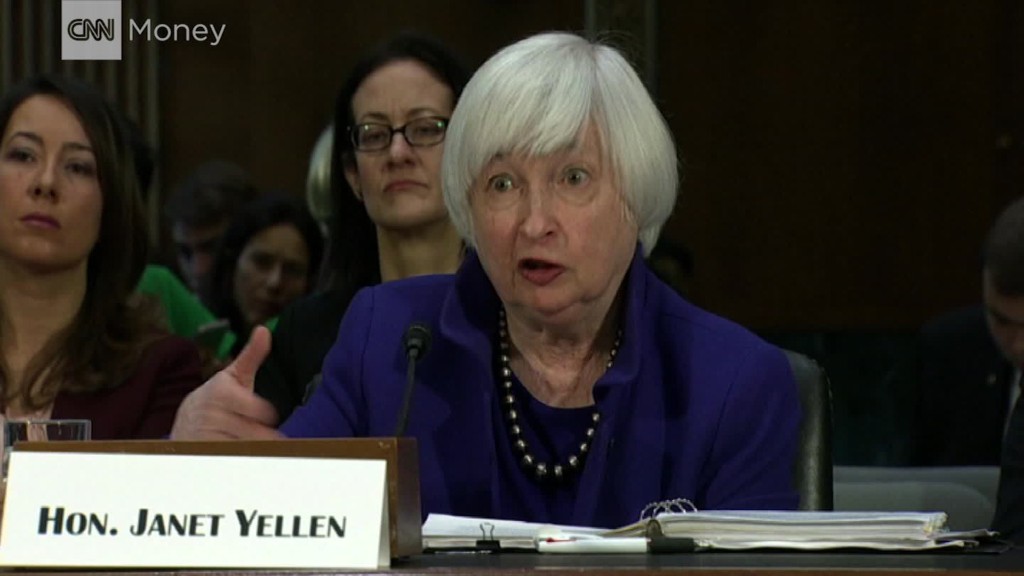
The hangover from the murky past of HSBC's private banking business is still lingering.
HSBC (HSBC) on Tuesday reported a net loss of $4.2 billion for the fourth quarter of 2016. The biggest single hit to its battered bottom line came from a $2.4 billion writedown of the value of its private banking business in Europe.
The global banking giant has spent years shrinking down and cleaning up its private banking operations, notably in Switzerland. The business came under scrutiny over revelations it catered to weapons dealers, tax evaders and dictators.
Related: Credit Suisse to cut up to 6,500 jobs after reporting $2.4 billion loss
HSBC's fourth-quarter results also suffered from lower revenue and higher costs than the same period a year earlier, when it posted a net loss of $1.3 billion.
The bank's shares were trading down around 5% in Hong Kong after it published the earnings report.
Its ugly results follow hefty losses reported by other major European banks in recent weeks, including Deutsche Bank (DB) and Credit Suisse (CS).
Related: Deutsche Bank plunges back into the red with $2 billion loss
HSBC has been cutting tens of thousands of jobs in recent years as it tries to overhaul its sprawling businesses to keep up with changes in the global economy. Last year, it sold off its operations in Brazil.
"We enter 2017 with the restructuring of the group essentially completed, and with a strong capital position and a conservative balance sheet," Chairman Douglas Flint said in a statement.
But the bank is also facing uncertainty arising from the political shocks last year of Britain's vote to leave the European Union and Donald Trump's victory in the U.S. presidential election.
Related: Banks begin moving thousands of jobs out of Britain
Flint warned of risks from populism influencing European elections this year, possible protectionist measures from the Trump administration affecting world trade and the big unknown of Britain's negotiations to exit the EU.
HSBC, Britain's largest bank, has already said it could move about 1,000 jobs from London to Paris to deal with the repercussions of Brexit.


